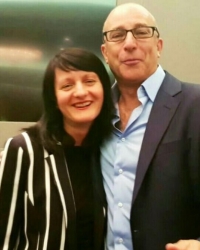Can a self-help book replace sessions with your therapist?
This is a really good question. And one that I get asked a lot by family, friends, and clients alike. As demand for good therapists, coaches and hypnotherapists soars, and as people's finances become ever more uncertain, many opt for the much cheaper option of buying a self-help book instead of the more expensive option of seeking a therapist. But is this a good or a bad idea, and can reading a self-help book be as successful?

In this article, I'll share some thoughts and ideas to help guide you.
How can reading benefit you?
Before I discuss reading self-help books, reading any genre of book is good for our mental health. Research shows that reading for pleasure is amongst some of the top ways for improving our mental well-being.
Reading for pleasure (whether that is reading a novel, a classic, a nonfiction book, an autobiography, or anything at all) lowers our blood pressure. It can also slow down our heart rate, deepen our breathing, thus increasing our oxygen levels, aid sleeping, and reduce sleeping problems such as insomnia.
Furthermore, reading increases and improves strong mental health traits such as resilience, confidence, self-esteem, motivation, and inner strength. Moreover, reading for pleasure increases intellect, and improves and creates neural pathways and brainwaves.
So, what is not to love about reading? Reading is a secret weapon that we all have access to.
Research suggests that reading for 10 minutes each day can have a significant impact on our overall health and mental well-being.
What are the benefits of reading a self-help book?
Reading a self-help book is a great starting point. Maybe you've just started to feel a little unwell or not quite yourself, or perhaps something has just happened recently in your life where you feel that you need a little bit of extra help and support.
Reading a self-help book can really help you gain insight into what you are going through, and why you are feeling the way you are. Some books even offer you techniques and tips on how to help yourself to feel better. As well as strategies to help you resolve any challenges or obstacles you may be facing. And some books also really help you to turn the corner for the better.
Moreover, reading a self-help book is a much cheaper alternative to seeing a therapist. And for short term, temporary issues, this may be all the help that you need.
What are the downsides of self-help books?
For more complex issues or issues that have been going on for more than a few weeks or even months, then seeking the advice of your GP initially, and then seeking the help of a professional, well-qualified therapist or coach is advisable.
Sometimes, challenges, obstacles, and mental health issues are more severe and complex. They may have lasted a few weeks or more, even a lifetime. Perhaps professional help has already been obtained without success. And so, this will need the help of a medical professional/experienced therapist.
For example, issues, conditions and disorders such as PTSD, anorexia, addiction, trauma, anxiety, depression or suicidal thoughts would all need external, professional help outside of the pages of a book.
This is not to say that reading a self-help book alongside medical/therapeutic treatment is not an excellent combination and addition. In fact, I would say that this is advisable.
Here are a few recommendations for you:
- Paul McKenna, Change Your Life in Seven Days.
- Susan Jeffers, Feel the Fear and Do It Anyway.
- My own book - Rebecca Jones, Source Your Inner Jet-Pack: Rapid Transformations for Life's Jetsetters.
In conclusion, reading of any kind is great for our mental health. If we're feeling a little stuck or challenged, for whatever reason, reading is a great step forward.
And, if we have more complex or long term issues, reading is a great added extra and add-on to also seeking medical help and the help of a well qualified and experienced therapist, coach or hypnotherapist.

Find the right hypnotherapist for you
All therapists are verified professionals
